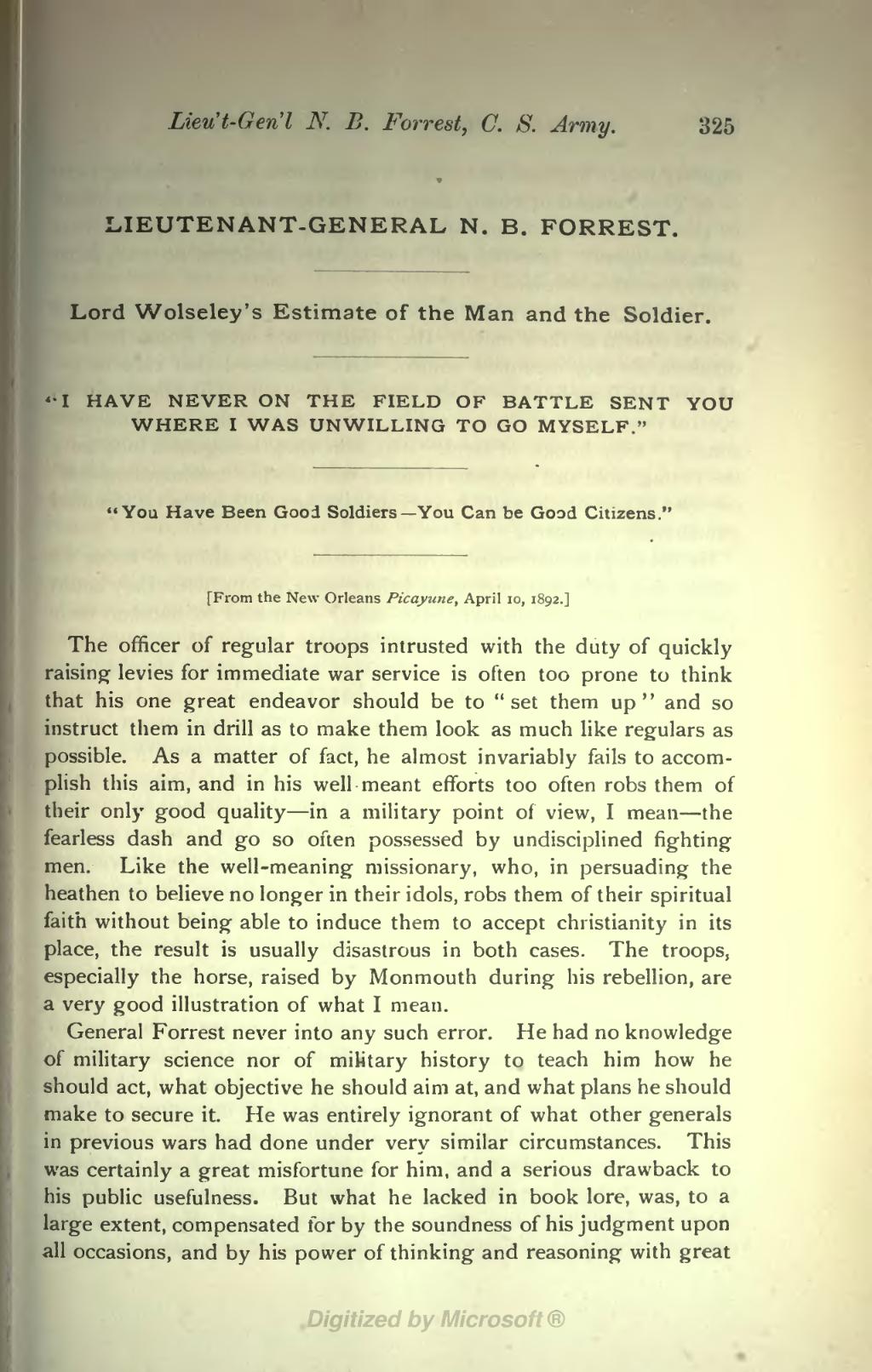Lieut-Genl N. B. Forrest, C. S. Army. 325
LIEUTENANT-GENERAL N. B. FORREST.
Lord Wolseley's Estimate of the Man and the Soldier.
<! HAVE NEVER ON THE FIELD OF BATTLE SENT YOU WHERE I WAS UNWILLING TO GO MYSELF."
You Have Been Good Soldiers You Can be Good Citizens. 1
[From the New Orleans Picayune, April 10, 1892.]
The officer of regular troops intrusted with the duty of quickly raising levies for immediate war service is often too prone to think that his one great endeavor should be to "set them up" and so instruct them in drill as to make them look as much like regulars as possible. As a matter of fact, he almost invariably fails to accom- plish this aim, and in his well-meant efforts too often robs them of their only good quality in a military point of view, I mean the fearless dash and go so often possessed by undisciplined fighting men. Like the well-meaning missionary, who, in persuading the heathen to believe no longer in their idols, robs them of their spiritual faith without being able to induce them to accept Christianity in its place, the result is usually disastrous in both cases. The troops, especially the horse, raised by Monmouth during his rebellion, are a very good illustration of what I mean.
General Forrest never into any such error. He had no knowledge of military science nor of military history to teach him how he should act, what objective he should aim at, and what plans he should make to secure it. He was entirely ignorant of what other generals in previous wars had done under very similar circumstances. This was certainly a great misfortune for him, and a serious drawback to his public usefulness. But what he lacked in book lore, was, to a large extent, compensated for by the soundness of his judgment upon all occasions, and by his power of thinking and reasoning with great
